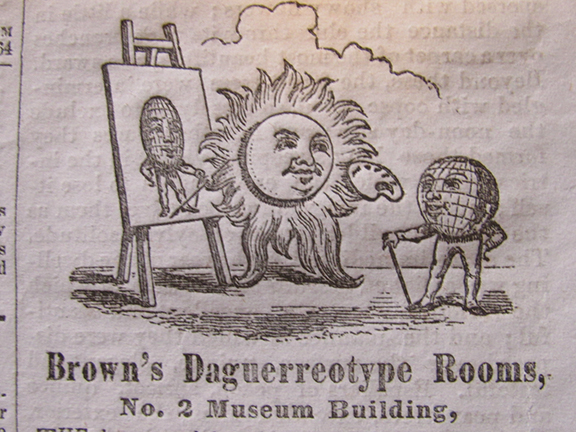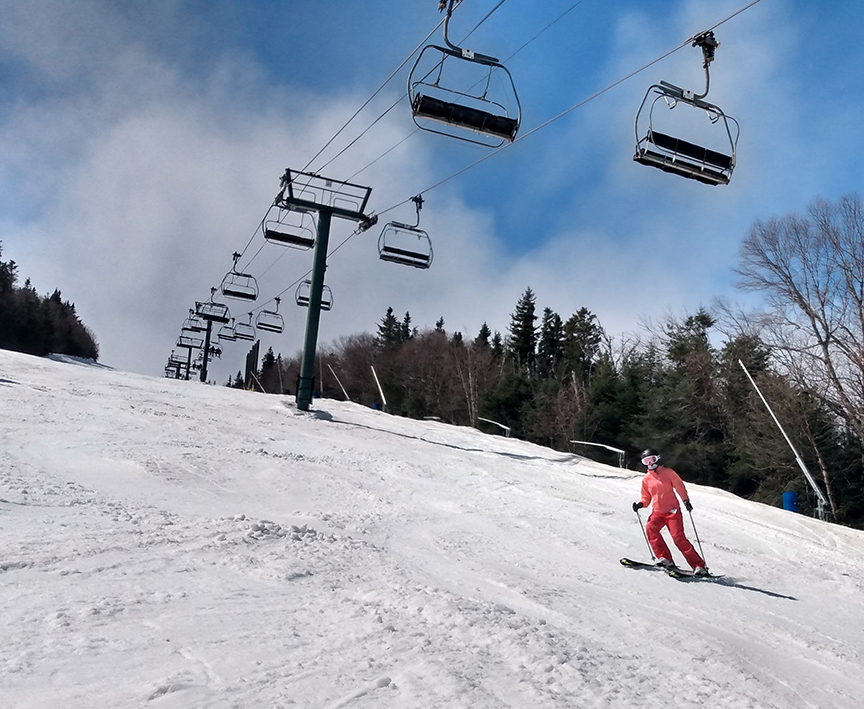Domestic Markets And Spring Goods For New Hampshire In April, 1854



by Robert Hanaford Smith, Sr.
Weirs Times Contributing Writer
Now is the time for farmers to make their soap. Those who know the great saving there is in using Potash, do not think of making this necessary article for family use without it. As it is a great convenience for people to know where to procure a good article, we would suggest that our friends Kidder & Duncklee, at the ‘Old Family Store,’ always keep a supply on hand.”
That was advice offered in the Domestic Markets section of The Union Democrat newspaper of Manchester, New Hampshire on April 5, 1854.
With much finer print and seven columns on a page, a newspaper published in 1854 contained considerably more information on four pages than probably twice or more as many pages today. That newspaper, however, was likely to be published once a week. An editorial column in the newspaper mentioned above insisted that “the world is not so bad as it seems.”

As I write this in the midst of the world-wide coronavirus pandemic of 2020, some people may be thinking that the world has suddenly become worse than they thought likely a few weeks ago. The news reported in 1854 was a combination of good and bad, including some tragic happenings, but there seemed to be a welcoming of spring with market reports and advertisements about products desirable for purchase in the new season. And a reminder of the importance of soap.
Domestic market wholesale prices were reported based on that which was sold on April 3rd at the Manchester marketplace. There had been but slight variation in prices though butter was a shade less than previously at 20 to 22 cents a pound and cheese a trifle more at 12 to 13 cents a pound. Wholesalers could purchase a barrel of apples for three to four dollars and a bushel of corn for $1.10. Eggs were priced at 14 to 15 cents a dozen and pork was 7 to 9 cents a pound. Wood was priced by the cord starting at $2.50 for pine and going to a high of $5.50 a cord for some oak and beech. New Hampshire farmers were surely interested in the Cattle Market conducted in Cambridge, Massachusetts on March 29, 1854 as 95 railroad cars of the Fitchburg Railroad and 58 cars of the Boston and Lowell Railroad loaded with cattle, sheep, horses, swine, and fowls from Maine, New Hampshire, Vermont, and Massachusetts brought the animals to market. Hides, pelts, and tallow were also sold with hides bringing up to $6.50 for 100 pounds.

In April of 1854, SPRING GOODS for the year were advertised by New Hampshire merchants. If you had been living back then you would have found that many of the goods being sold consisted of fabrics, a telling indication that some families made their own clothing in those days. Silk, velvet, muslin, linen, cambric, and denim were all among the products being sold. There were, however, advertisements for Ready Made Clothing and Tailoring services, along with “garments made to order,” revealing that not all clothing used was home-made.
Other popular products appeared to have been dishes and utensils of different types, such as crockery, stone dining and tea sets, china, glass, tin, and wood ware. Barton and Company at 16, 18, 20, and 22 Elm Street in Manchester, advertised $50,000 of NEW SPRING GOODS including a carpet warehouse with new patterns and painted floor cloths from 3 to 20 feet wide. They also said they had a big store under the Methodist Church. Kidder and Duncklee’s store was the place to go if you couldn’t find something anywhere else, so if you wanted feathers, they had them. “FEATHERS- Live Geese, Sea Fowl, and Hen’s Feathers” were all available.
Revolutionary War issues were still being settled in the year 1854. A lawyer from Concord, with an office conveniently located at the Secretary of State’s office, offered to help widows and heirs of Revolutionary War soldiers with claims against the government. arising out of that war, indicating that no fee would be charged unless he was successful in whatever the claim involved.

Congress had passed certain laws which provided for pensions, back pay, or land promised as bounties to soldiers who served in the war and their widows and heirs. Attorney and Counselor at Law Jesse A. Gove, stated that “Under the new pension law, the widows of all Revolutionary officers and soldiers who served six months or more and married since 1800, are entitled; also the widows of officers and soldiers in any of the wars, who died or were killed in the service, or have died by reason of wounds received or disease contracted while in the line of duty, since their discharge.”
Lawyer John T. Moore of Manchester advertised that he could help soldiers who served in the War of 1812 or the Indian wars since 1790, or their widows and minor children, obtain Bounty Land under an act passed in 1850. He also offered help with the claims of widows and children of Revolutionary and Mexican War officers and soldiers.
Notices of transportation companies were placed in the April, 1854 newspaper, including those of several railroad companies. Included were the Manchester and Lawrence Railroad, The Merrimack and Connecticut River Railroad, the Concord Railroad, the Boston, Concord, and Montreal Railroad, the Contoocook Valley Railroad, and the Northern Railroad. The Haverhill and Manchester Stage gave notice of its schedule for mail stages running from and to Manchester and Haverhill and Newburyport, Massachusetts. The fare from Newburyport to Manchester, New Hampshire was $1.25. An Omnibus Line ran six times a day between the City Hotel in Manchester and Leavitt’s Hotel in Piscataquog. The price of a ticket was five cents or packages of 20 for $1.00.” The omnibus was a horse-drawn vehicle which I guess was similar to a stage-coach except larger with capacity for more passengers.
The April 5, 1854 newspaper printed a poem welcoming the robins back from their winter homes. It was borrowed from the Boston Transcript, and said, in part..
“Of the winter we are weary, Weary of its frost and snow.
Longing for the sunshine cherry, And the brooklet’s gurgling flow;
Gladly then we hear thee sing The reveille of the Spring.
Robins Come!”
Robert Hanaford Smith, Sr., welcomes your comments at danahillsmiths@yahoo.com.



